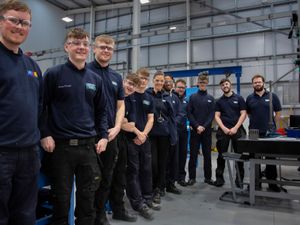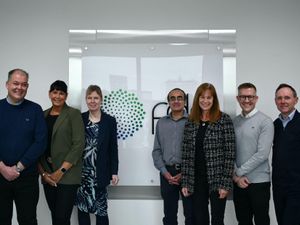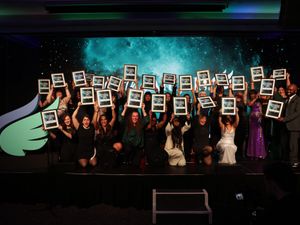Tata batteries will be heading for Wolverhampton
Many of the batteries to be made at the giant new battery factory, expected to be built at Bridgwater in Somerset will be coming up the M5 to the Black Country.
JLR's engine manufacturing centre at the i54 to the north of Wolverhampton will be the luxury car group's electric propulsion manufacturing centre with the batteries used in the electric drive units that will be put together there. Supplies are expected to start in 2026.
Tata, the Indian owner of JLR has revealed plans to build the £4 billion 40 gigawatt hours capacity cell battery factory which the Government says will create around 4,000 jobs directly and thousands more indirectly, such as in supply chains.
The plant will become one of Europe's largest battery cell manufacturing sites when it starts producing in 2026 and will produce about 40 gigawatt hours of battery cells every year.
The Government says it is enough to provide about half the battery production the UK will need by 2030.
It has stepped in with subsidies to entice Tata Sons, which owns Tata Group, to build the plant in the UK but has not said how much money has been promised.
"The exact numbers on this will come out in the normal way. Because of the commercial sensitivities, they have to be released in the usual way," said Energy Security Secretary Grant Shapps.
Tata Sons chairman Natarajan Chandrasekaran said: "Our multibillion-pound investment will bring state-of-the-art technology to the country, helping to power the automotive sector's transition to electric mobility, anchored by our own business, JLR."
The car battery factory would have close access to the new Hinkley Point C nuclear power station, which is expected to open later this decade.
JLR said it would an anchor customer of Tata Group’s new battery venture Agratas.
West Midlands Mayor Andy Street, who visited India last year on a trade mission and met Mr Chandrasekaran face-to-face, said it was a groundbreaking day for the UK automotive industry and the West Midlands.
He said the Tata announcement meant the region remained JLR’s home and would safeguard jobs.
Mr Street explained: "Not only does Tata's decision propel the Uk back to the forefront of the next generation of automotive manufacturing, but it also means the West Midlands remains at the heart of Jaguar Land Rover's activities. That ultimately means tens of thousands of local jobs safeguarded, with the potential for thousands more to be created as JLR will look to scale up to adapt to its new gigafactory.
"Batteries may be being produced elsewhere in the UK, but the vast majority of all JLR's activity remains here in the heart of the West Midlands. That's why once it became clear that our Coventry site was not going to meet Tata's specifications, all focus shifted to ensuring they chose another UK site for their gigafactory. I am really pleased all the Government's lobbying – including my flight to India to meet the chair of Tata face-to-face – has paid off.
"Meanwhile we remain confident that Coventry Airport will still become a gigafactory, and I am pleased to report that negotiations with a potential investor are progressing well."
Mr Chandrasekaran said: "I also want to thank His Majesty's Government, which has worked so closely with us to enable this investment."
Prime Minister Rishi Sunak said: "Tata Group's decision to build their new gigafactory here in the UK _ their first outside of India – is a huge vote of confidence in Britain. This will be one of the largest ever investments in the UK automotive sector.
"It will not only create thousands of skilled jobs for Britons around the country, but it will also strengthen our lead in the global transition to electric vehicles, helping to grow our economy in clean industries of the future."
Dudley North Conservative MP Marco Longhi said: "Great news and especially good for our Black Country automotive supply chain."
Earlier this year, start-up Britishvolt went out of business. Despite having little experience in the sector, it had promised to build the UK's first gigafactory.
But in the end it could not raise enough money to push ahead with the plans.
Vauxhall maker Stellantis said in May that it would struggle to make electric cars in the UK without changes to the Brexit deal.
It said it is vital to "reinforce the competitiveness of the UK by establishing battery production".
Tom Thackray, CBI decarbonisation director, said: "Tata’s announcement of plans for an electric car battery factory in Somerset is an important moment for our economy and our transition to net zero. This decision will create green jobs and help position the UK as a prime spot for future investment."
The battery gigafactory will produce high-quality, high-performance, sustainable battery cells and packs for a variety of applications within the mobility and energy sectors.
Founded by Jamsetji Tata in 1868, the Tata Group employs 935,000 with 60,000 in the UK, where it has invested £19bn, including 30,000 at JLR.
The group, which includes Tata Steel and Air India operates in more than 100 countries across six continents.





